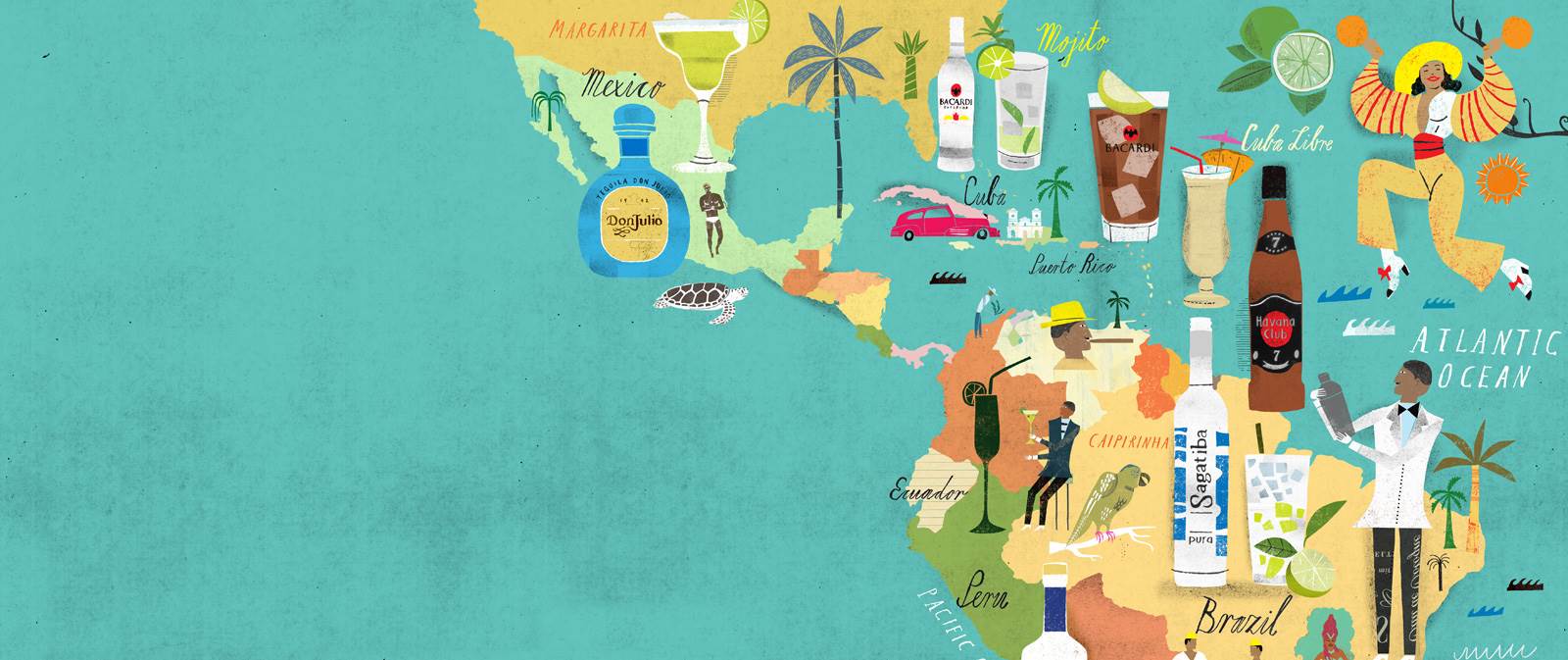9 tips for backpacking South America


From the tropical beaches of the Caribbean to the windswept archipelago of Tierra del Fuego, backpacking South America guarantees a treasure trove of adventures that has fuelled the imagination of travellers for centuries, with dizzying landscapes, legendary cities and mind-boggling ancient ruins.
Haul on your backpack and follow in some famous – and infamous – footsteps: from Darwin’s voyage through the Galápagos and Che Guevara’s across the Andes to the devastating path of the conquistadors in Peru.
With backpacker-friendly hostels at every turn – and especially in irresistible cities from Buenos Aires and Rio to Quito and Cartagena – backpacking South America is both a breeze and the trip of a lifetime.
1. Learn the lingo
South America is a hugely popular destination to brush up on your Spanish: Cusco, Peru; Buenos Aires, Argentina; Sucre, Bolivia; and Quito, Ecuador, are the most popular destinations to take a course. In Brazil, most of the large cities are great locations for learning Portuguese. You can also try out indigenous languages such as Quechua in Bolivia or Guaraní in Paraguay. Living with a host family for a stint is a rich way to go about it.
2. Use your nous
South America is a continent that suffers from high levels of poverty. In general, cities are more dangerous than rural areas, although the very deserted mountain plains can harbour bandits. Many of the working-class barrios of big cities are “no-go” areas for tourists, as are the marginal areas near them. Caracas has experienced an upsurge in violent crime in the last few years, so take extra care.
3. Research your accommodation
The range of accommodation available is enormous and you’ll find that the US$10 that buys you a night’s rest in Ecuador won’t even stretch to breakfast in the Southern Cone or French Guiana. Unless you’re rocking up at festival time there’s usually no shortage of places to stay. Generally, the Andean countries are the least expensive, and you should be able to find a decent room in a residencial or pensión for under US$15 (US$8 for dorms). A lot of travellers stay in backpacker-focused hostels – with the term “party hostel” referring to those places that lay on a throbbing bar and plenty of reasons to stay on site (try to avoid being one of those people).
4. Embrace bus travel
The “chicken” bus… You’re going to have to learn to love these blinged-up ex-US school buses, adorned with cartoonishly painted images of everything from religious figures to curvaceous warrior queens and the Tasmanian Devil, which are the main means of travel for short-ish journeys across much of the continent. They get their nickname not from the stench of the fried chicken being munched by your fellow passengers (though this is another South American favourite), but from the fact that locals will bring just about anything onto the bus with them – including farm animals.
5. Time your trip wisely
With about two-thirds of South America near the equator or the tropic of Capricorn, visitors to most destinations can expect a tropical or subtropical climate all year round. Temperatures rarely drop below 20°C, while rainforest regions average maximum temperatures of about 30°C. As you get further south (and don’t forget the southern hemisphere reverses the seasons), you’ll find colder winters from June to August and milder summers from December to February, with the extreme south of the continent freezing between April and October. It’s important to plan around the rainy season in each country, particularly when travelling in the Andes.
6. Follow the festivals
South America loves a fiesta, by far the most famous being Carnaval, the legendary flesh-fest (closely associated with Rio), with official celebrations usually taking place on the days before Ash Wednesday and Lent. For something spiritual, head to Inti Raymi, a week-long Inca festival in Cusco, Peru, where thousands of revellers honour the sun god. Down in Argentina, the Feria de Mataderos lets you mingle with gauchos at one of Buenos Aires’ most exhilarating events. Be aware, when planning your movements, that some towns and villages celebrate saints’ days and other local holidays that shut down businesses and make travel difficult.
7. Stay healthy
The potential health risks in South America read like a textbook of tropical diseases. But if you prepare carefully and take sensible precautions, you’ll probably face nothing worse than a mild case of “Montezuma’s revenge” (traveller’s diarrhoea) as your system gets used to foreign germs and unhygienic conditions. That said, be sure to get health advice before you travel and arrange vaccinations in plenty of time (we’re talking ten weeks or so before you travel). The most common risks are heat stroke, and bites and stings – especially by those pesky mosquitoes, so definitely plan ahead if you’ll be in a malaria zone. Good medical insurance is, of course, essential.
8. Go wild
Visit any corner of the Amazon (Bolivia, Brazil, Ecuador, Peru and Venezuela) and you’ll be treated to a unparalleled biodiversity, while the Pantanal, Brazil, is the world’s largest wetland, home to thousands of animal species (jaguars and pumas among them). Splash out on a trip to Ecuador’s Galápagos Islands to see the giant tortoises, marine iguanas, penguins, sea lions and flightless cormorants that Charles Darwin observed, subsequently developing his theories on evolution. Down in Argentina’s Tierra del Fuego, you can take a take a boat trip along Beagle Channel to see the penguins and whales.
9. Be brave about local cuisine
Your tastebuds are in for the time of their life, with each destination promising culinary riches. Even when a creation is shared between two countries, there’s often passionate debate about who does it best, as in the case of pisco sours, where the rivalry between Chile and Peru is fierce (better try both, then). As for the grub, a lot of the musts are dishes that the locals eat. As well as meaning that they’re cheap, this also guarantees you’ll be immersed in the day-to-day culture – whether that’s weighing out your own lunch alongside office workers in a comida por kilo joint in Rio or nibbling on a warming salteña in La Paz.





